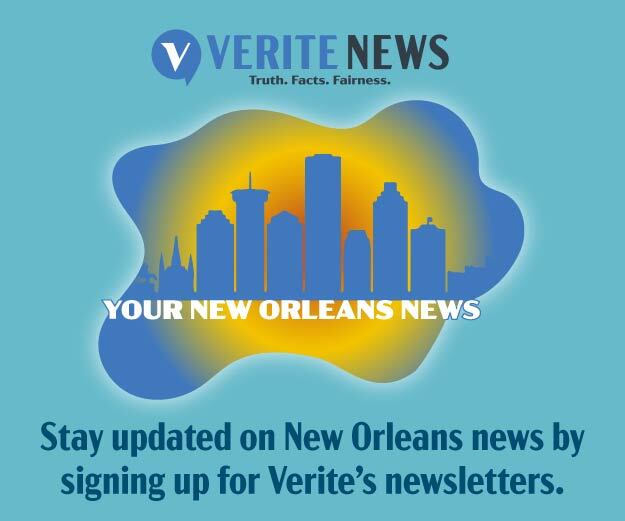The message from New Orleans Mayor LaToya Cantrell’s administration over the past 11 months has been clear, according to street musicians and cultural advocates: The Royal Street pedestrian mall in the French Quarter is closed.
Despite announcing last April it would be reopening the popular attraction —which is supposed to be closed to vehicular traffic during designated hours — the city has failed to put out the barricades needed to block traffic, and law enforcement officers have threatened performers with arrest or hefty fines if they attempted to do it themselves.
And yet, the street musicians, or buskers, noticed something strange happening. At the same time the city was refusing to reopen the mall, employees with the Department of Public Works were walking up and down Royal every day, placing tickets on the windshields of cars lining the street.
The alleged violation? Parking in an area designated as a pedestrian mall.
“It’s complete dysfunction,” said Ethan Ellestad, director of the Music and Culture Coalition of New Orleans. “The city is profiting off the mall while threatening performers for trying to create the mall.”Since last April, the city has ticketed 794 vehicles parked on Royal Street during the mall’s hours of operation — citing them under a city law that prohibits parking in designated pedestrian malls — for a total of $59,550 in fines, according to records provided to Verite.
The Cantrell administration did not respond to a request for comment.
In an emailed statement, the New Orleans Police Department defended the city, saying that signs along Royal Street clearly designate it as a pedestrian mall. “As such, [the Department of Public Works] enforces parking violations and is enforcing the signage appropriately,” the department said.
City Councilman Joe Giarrusso said it is not that simple. He recently authored and passed a measure that prevents the city from ticketing drivers for speeding through school zones with malfunctioning warning lights. People who received fines were justifiably upset, he said, because the school zone signage was confusing. No one knew what they were or were not supposed to do. The situation on Royal Street is similar, Giarrusso said.
“If something is supposed to be pedestrian, then it’s supposed to be pedestrian. And if it’s not supposed to be pedestrian, then you need to give people adequate notice. You can’t live in a world where you have it both ways,” he said.
“If the city is saying we have blocked off this area, and there’s not a clear indication of blocking it off, then how are they supposed to know they’re not supposed to park there? I think there are grounds to challenge the tickets.”
“You can’t live in a world where you have it both ways.”
City Councilman Joe Giarrusso
The city recently recommitted to enforcing the ban on cars during pedestrian mall operating hours. But the new effort appears to have fallen short.
Last week, following a story by Verite, NOPD announced it would begin placing temporary barricades along the Royal Street pedestrian mall while the city worked on a longer-term bollard system similar to what’s in place along the Bourbon Street pedestrian mall. On Wednesday (March 15), however, the entire street remained open to traffic after 11 a.m. when the pedestrian mall was supposed to open. The temporary barricades sat against curbs or on sidewalks, undeployed.
The New Orleans Police Department previously said it could not dedicate any officers from the 8th District, which patrols the French Quarter, to moving the barricades on a daily basis “based on current manpower numbers and need to respond to calls for service.”
Councilman Freddie King, whose district includes the French Quarter, introduced a resolution last week in support of the city entering into a cooperative endeavor agreement with the French Quarter Management District to allow that agency to manage the pedestrian malls on Royal and Bourbon streets. The council deferred the resolution for a later date.
King’s office did not respond to a request for comment.
‘It’s just ridiculous’
The Royal Street pedestrian mall was created by a 52-year-old ordinance that requires it be closed to traffic from Bienville to Orleans streets on weekdays between 11 a.m. and 4 p.m. and weekends between 11 a.m. and 7 p.m. It has become one of the city’s most popular tourist destinations with millions coming each year to stroll the wide-open thoroughfare while listening to dozens of buskers play traditional jazz, blues and ragtime.
And yet, the city doesn’t treat the Royal Street mall with the same level of respect given to Bourbon street, Ellestad said.

In 2019, the city temporarily shuttered the mall following the collapse of the nearby Hard Rock Hotel and kept it closed throughout the COVID-19 pandemic. Two-and-a-half years later, the mall remained closed with no end in sight, even as the rest of the city reopened and returned to normal.
Dozens of frustrated buskers staged a mass protest last April demanding its return. A few weeks later, on April 15, the NOPD announced it would once again be reopening the mall. But little changed. The city didn’t barricade the five intersections along Royal Street needed to block vehicular traffic, as required by law.
The NOPD’s excuse that it doesn’t have the manpower to erect the barricades no longer holds water given the volume of tickets handed out to cars parked on the mall, Ellestad said.
“If you have parking enforcement officers regularly traversing the mall to find violations, there’s absolutely no reason the city can’t have someone putting out those barricades during the same time,” he said. “There’s just no good argument except that someone actively did not want them to go out. It’s just ridiculous.”
Join Verite’s Mailing List | Get the news that matters to you









